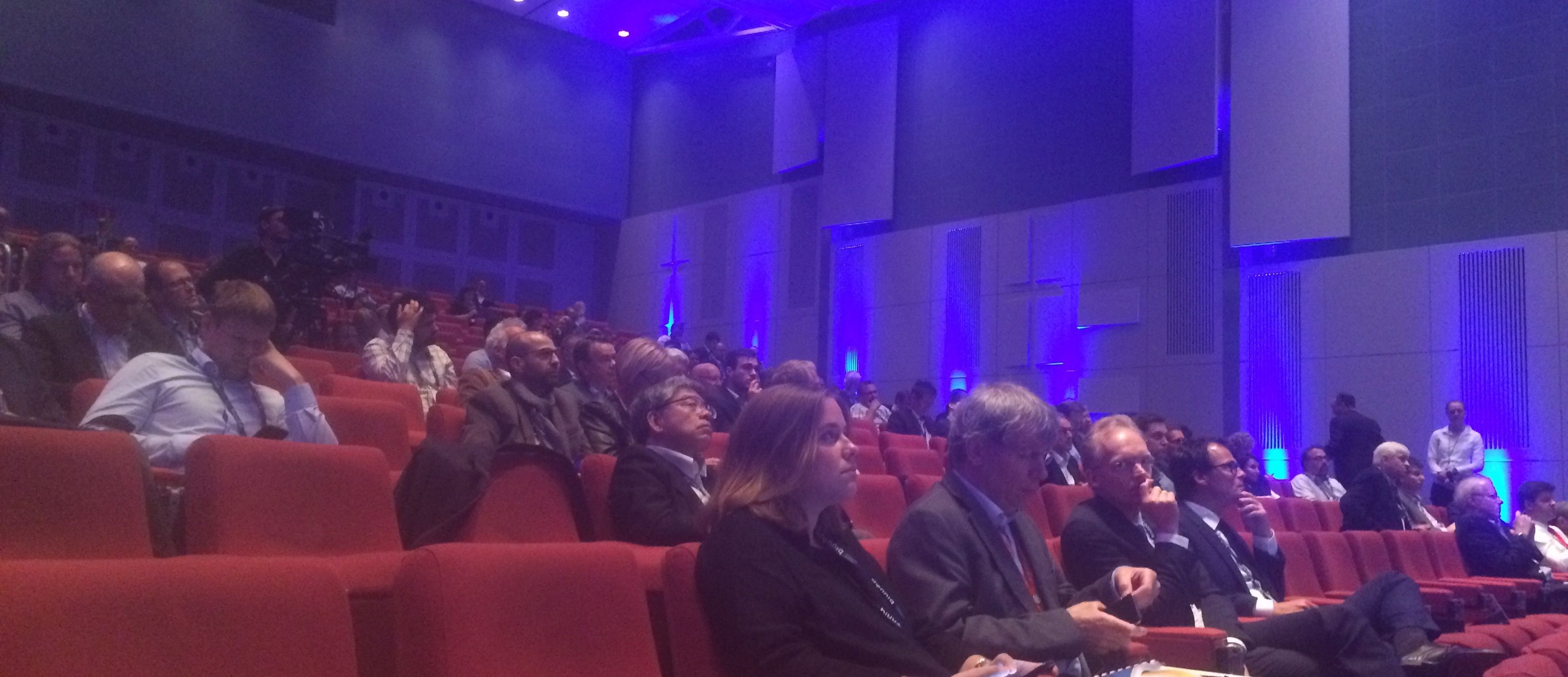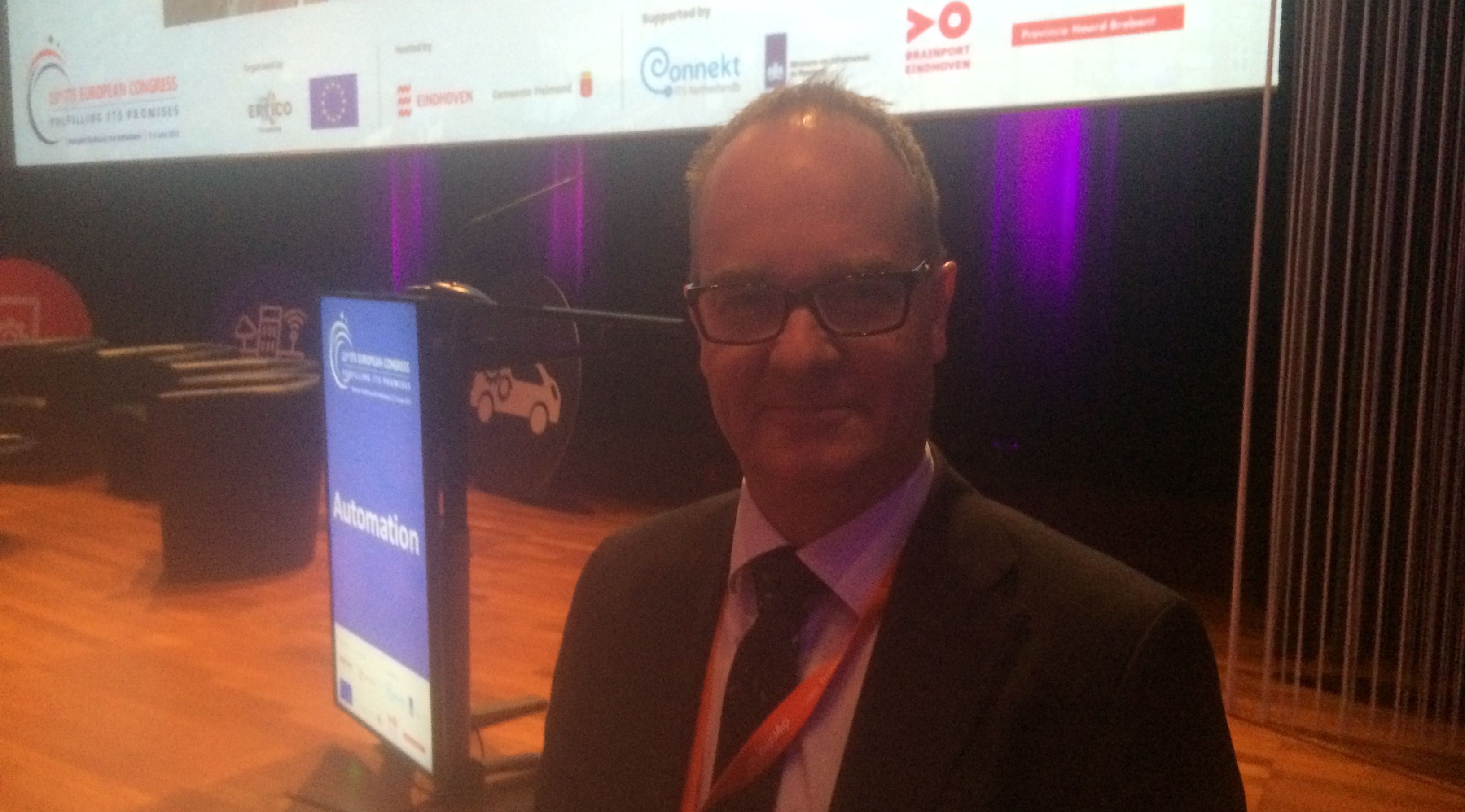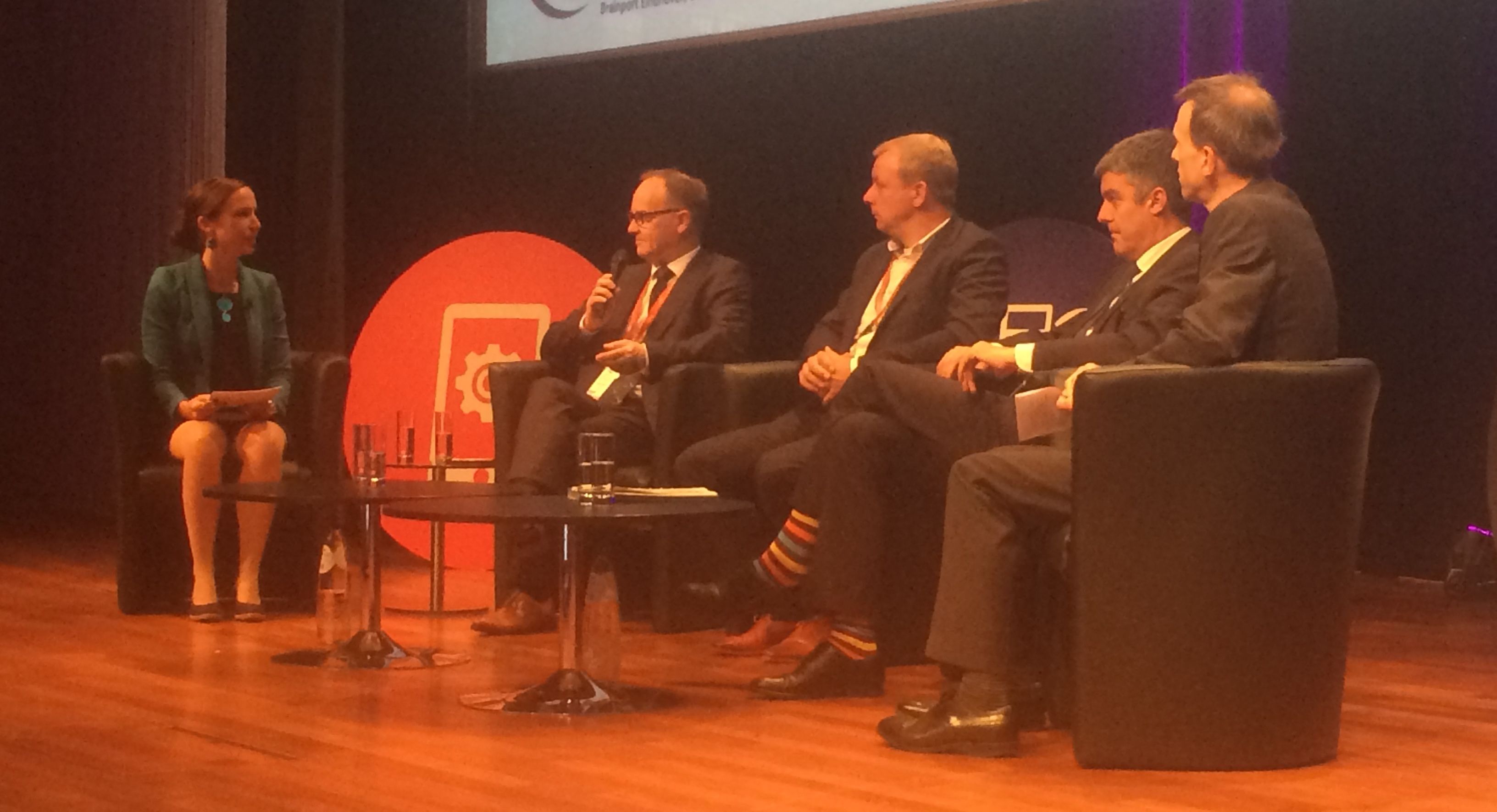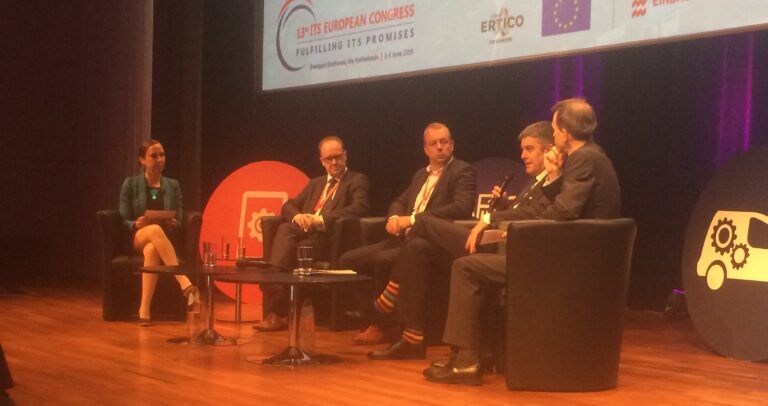The building of 5G networks for connected vehicles has become a hot topic around the world as politicians question the wisdom of using Chinese components in hardware – but at the ITS European Congress in Eindhoven this week (June 3-6) ITS leaders called not for secrecy, but for more openness in order to make Europe a more effective competitor.
 At a busy plenary session at the Philips Hall (above), in the iconic Evoluon Congress Centre in Eindhoven, Netherlands, speakers including Lluis Gómez, commissioner for economic promotion and public mission, City of Barcelona, Spain; Olivier Lens, programmes director, FIA Region I, Belgium; and Marko Sillanpää, director general of road transport, Traficom, Finland, said 5G was essential to a connected and autonomous future, but it will only be effective if everyone works together.
At a busy plenary session at the Philips Hall (above), in the iconic Evoluon Congress Centre in Eindhoven, Netherlands, speakers including Lluis Gómez, commissioner for economic promotion and public mission, City of Barcelona, Spain; Olivier Lens, programmes director, FIA Region I, Belgium; and Marko Sillanpää, director general of road transport, Traficom, Finland, said 5G was essential to a connected and autonomous future, but it will only be effective if everyone works together.
“In Europe we compete in a global world,” said Sillanpää (below). “We have to keep our regulations flexible to support our companies. 5G is important to help cars communicate and we will need it working very soon. For example, we are testing buses that still have a driver, but the driver can control several buses at once. For that we need a reliable data connection. This is why 5G is so important.”
 “In order for things like MaaS to happen there needs to be a lot of data,” said Lenz. “We need to learn more about the movement of people and goods. And what is very important is to create the regulatory framework to insure all this will happen.”
“In order for things like MaaS to happen there needs to be a lot of data,” said Lenz. “We need to learn more about the movement of people and goods. And what is very important is to create the regulatory framework to insure all this will happen.”
Lenz was keen to stress that regulation doesn’t always mean stopping companies from doing things. In some cases regulation can give companies the freedom to trade, develop and be open. The regulations should be there to protect them from unscrupulous competitors.
“Open exchange of data and information is an area where we still need regulation to ensure we get into a competitive environment,” said Lenz. “In an unregulated environment there could be a threat. If there is no regulation, we risk very much getting into a system of closed economies. It’s about exchanging data and supporting the exchange of data between different stakeholders. It is vital for the success of automation. One of the purposes of European institutions is to ensure the framework is created. There are a lot of efforts toward vehicle data being shared. We must create a competitive environment if Europe wants to stay in the lead.”
 Lenz concluded that once such a competitive environment is created within Europe there is nothing to stop European companies and governments competing directly with, or even cooperating with China, the USA and other nations.
Lenz concluded that once such a competitive environment is created within Europe there is nothing to stop European companies and governments competing directly with, or even cooperating with China, the USA and other nations.
Finally Gómez added that in such a global market place, Europe will have the edge due to one important asset – its cities. “We might be scared of China or happy to be behind the US, but we should be in front of everyone,” he said. “In Europe we have our cities. We’ve been managing them for 20 centuries. The Chinese and Americans will be fast and we don’t want to be left behind. We need to use our cities, they will help us lead in technology and in the world. We have to think about what is best for our citizens. Could it be flying taxis? We don’t know. But the European Commission is playing a very important role in helping cities to work together.”





